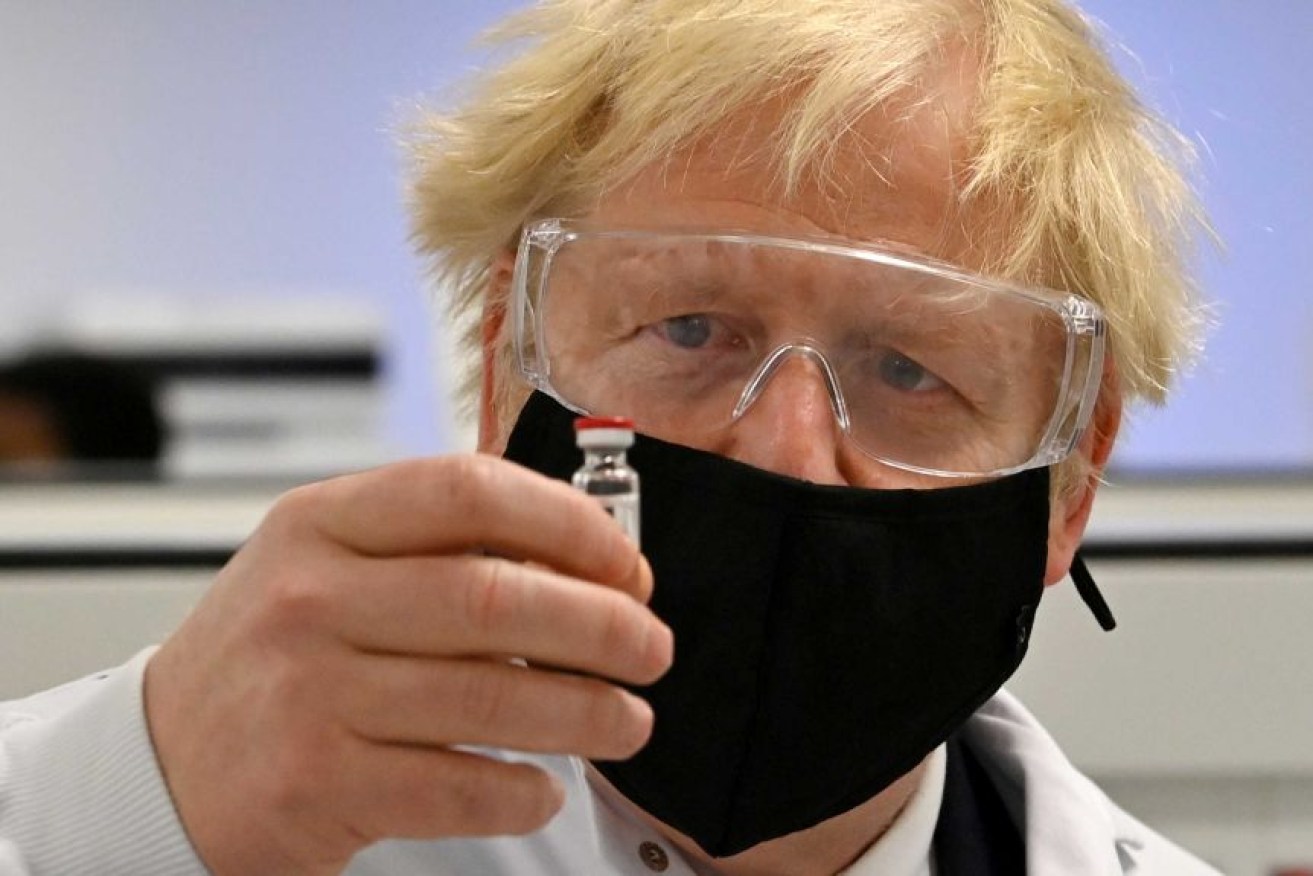New vaccine efficacy fears as virus ‘of most concern’ mutates again in UK
The coronavirus mutation “of most concern” that could impact vaccine efficacy has occurred spontaneously in the UK variant, says a professor of outbreak medicine who is part of a panel that advises the government.

British Prime Minister Boris Johnson with the Pfizer-BioNTech vaccine. The Oxford AstraZenica candidate has returned transformational results. (Photo: ABC)
The E484K mutation, which occurs on the spike protein of the virus, is the same change as has been seen in the South African and Brazilian variants that have caused international concern.
Several laboratory studies have found that vaccines and antibody therapy are less effective against the South African variant.
By contrast, early evidence showed that vaccines worked just as well against the UK variant, called B.1.1.7, which originally did not have the E484K mutation.
“The mutation of most concern, which we call E484K, has also occurred spontaneously in the new Kent strain in parts of the country too,” said Calum Semple, a member of the Scientific Advisory Group for Emergencies, on BBC radio, referring to the southern English county where the UK variant was first detected.
Concern over the South African variant has prompted authorities in England to begin a door-to-door mass testing drive targeting 80,000 people living in areas where cases of the variant have been found in people with no link to South Africa.
The fact that the E484K mutation had occurred spontaneously in the UK had already been reported in a technical briefing published by Public Health England but this had not been widely noticed outside scientific circles.
The report said the mutation had been detected in 11 B.1.1.7 genomes, possibly as a result of “more than one acquisition event,” suggesting that the 11 genomes were not all linked to each other and the mutation may have occurred spontaneously at separate locations.
The name E484K, in layman’s terms, is like map coordinates.
The number 484 is the exact location of the mutation, the letter E is the amino acid that it was originally and the letter K is the amino acid that it has mutated to.
“Unfortunately, the lack of control of these different variants in the UK may lead this population to become a melting pot for different emerging SARS-COV-2/COVID-19 variants,” said Julian Tang, a virologist at the University of Leicester.
Volunteers and police officers in several parts of England began knocking on people’s doors to hand out COVID-19 testing kits on Tuesday to try to halt the spread of a highly infectious variant that originated in South Africa.
The testing surge was announced by the government on Monday after 11 people in different regions tested positive for the variant without having any links to people who had travelled to South Africa.
In total, the UK has found 105 cases of the variant, of which all but those 11 were people who had either been to South Africa or been in contact with someone who had.
The campaign will involve testing 80,000 people across eight different areas – the ones where the 11 concerning cases were found – regardless of whether they are showing any symptoms.
The eight areas concerned are three parts of London, two in the southeast of England, one in central England, one in the east and another in the northwest.
-AAP












